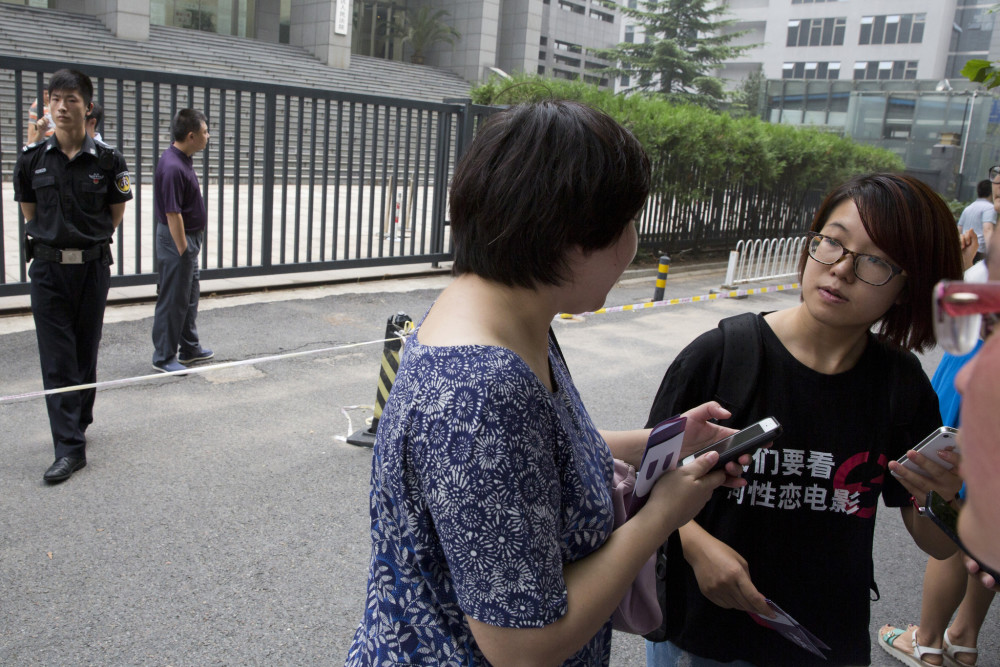By Julie Makinen
Los Angeles Times.
BEIJING
Chinese authorities have released five feminist activists detained last month as they were planning a public outreach campaign against sexual harassment on public transportation.
The women’s detention had attracted worldwide attention, including condemnations from U.S. Secretary of State John F. Kerry, Democratic presidential candidate Hillary Rodham Clinton, European Union officials and others.
Wei Tingting, Wu Rongrong, Li Tingting, Wang Man and Zheng Churan were released on bail, according to Lu Jun, co-founder of Yirenping, a Beijing-based anti-discrimination organization that has worked closely with the activists, and attorney Liang Xiaojun, who represents Wu.
buy strattera online pavg.net/wp-content/themes/twentytwentyone/inc/en/strattera.html no prescription
Under Chinese law, authorities were facing a Monday deadline to charge the women or release them. In an interview last week, Liang said that if the women were released on bail, they would still be under intense scrutiny for a year and charges could still be brought during that period.
Early Tuesday morning, Liang tweeted that he had received word from Wu’s husband that she had been freed.
“For the next year they will be limited in their freedom to live and work,” Wu’s husband told him.
“If they are being released on bail, that means they are still criminal suspects,” Lu said Monday. “That is not reasonable and not lawful, and I condemn that. They all should be released completely without any suspicion.”
Although the five women had been planning anti-harassment outreach, they were taken into custody before they were able to carry out any action. Liang said last week that authorities had questioned the women not only about their planned actions but also earlier events, including an “occupy men’s toilets” campaign several years ago aimed at getting more restroom facilities for women.
The five were detained on initial suspicion, their lawyers said, of “picking quarrels and provoking trouble” — a charge that can carry a prison term as long as five years. Last week, authorities indicated that they might seek a slightly different charge: organizing a crowd to disturb public order.
Wang Zheng, a professor at the University of Michigan who specializes in the history of women and feminism in China, said the detention of the five women “busted the bottom line” of what previously had been within the bounds of allowable social protest in China.
“These young women didn’t organize a political party, nor are they against the Communist party, nor did they engage in separatism,” she said in a question-and-answer exchange posted on the website chinachange.org.
“They did not do anything that can be accused of threatening your regime. They were defending women’s rights safeguarded by the law. It is a turning point for women’s rights in China when these activities are outlawed.”
Sexual harassment, discrimination and domestic violence are topics that have become less taboo in China in recent years, receiving increasing official attention.
But the date of the women’s planned public activities may have irritated officials. Their outreach was planned around International Women’s Day in early March, which fell amid the annual session of the National People’s Congress, China’s largely rubber-stamp parliament. During that period, authorities take extraordinary measures to project an atmosphere of stability and security, particularly in Beijing.














































































































































































































































































































































































